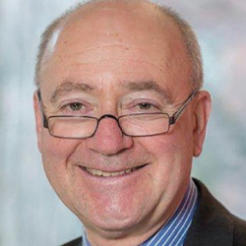Chief executives body Acevo has called for an inquiry into Charity Commission board member Gwythian Prins, while a former board member has asked the Commission to consider his fitness to continue.
Andrew Purkis, a former Commission board member and charity trustee, wrote to William Shawcross, chair of the Commission to express his concern that comments from Prins on the EU contradict the Cabinet Office's code of conduct for board members of public bodies.
Acevo has called for the Commission to conduct an inquiry into the same comments.
Prins has written an essay, Beyond the Ghosts – does EU membership erode Britain’s global influence?, which has been published by the campaign group Historians for Britain and is due to appear in an Institute for Economic Affairs publication.
Both Acevo and Purkis are concerned that it is not appropriate for Prins to be making political statements.
The Charity Commission has confirmed that it will consider the issues raised in consultation with the Cabinet Office.
In his letter to the chair of the Commission Purkis outlined five parts of the code which he believes could have been broken and called for the chair to consider them.
“It is difficult to resist the conclusion that this was a conspicuous, multiple breach of the code that should bind all members of a public body such as the Charity Commission,” Purkis said.
“I ask you as chairman to take all necessary steps to repair and maintain the reputation of the Commission as a public body that adheres to the standards set out in the code.”
The sections of the code that Purkis said were potentially breached are:
- Section 3.11 which says: “You should abstain from all controversial political activity”.
- Section 3.12 which says: “On matters directly related to the work of the [public] body, you should not make political statements or engage in any other political activity”.
- Section 3.14 which says that a board member should at all times exercise proper discretion in any political activity and inform the chair before undertaking any significant political activity.
- Section 4.1 which says: “You must ensure that no conflict arises, or could reasonably be perceived to arise, between your public duties and your private interests – financial or otherwise”.
- Section 4.2 which says: “In matters in which you have a non-financial interest, you should not participate in the discussion or determination of a matter where the interest might suggest a danger of bias.”
Copies of the letter have been sent to Paula Sussex, chief executive of the Charity Commission, and Matthew Hancock, minister for the Cabinet Office and Paymaster General.
Purkis suggested that Shawcross should think about whether it was appropriate for Prins to continue to sit on the Commission’s board.
“I ask you to consider the possibility that someone like Professor Prins, who makes such a valuable contribution to debate in a democratic society through his very strong opinions on controversial issues allied to high intellectual ability and communication skills, may not be the right sort to be confined by the requirements of impartial service and discretion on a public body.”
Shawcross said in response today: "As the chairman it is my duty and responsibility to protect and uphold the independence and integrity of the Charity Commission and I take this duty extremely seriously. The Charity Commission will, in consultation with the Cabinet Office, take all the necessary steps to consider the issues raised against the requirements of the Cabinet Office code of conduct for board members of public bodies."
Acevo calls for inquiry
Acevo has called for an inquiry into the comments made by Prins and why the Commission defended his right to make them.
The Commission had previously issued a statement defending Prins' right to publish academic articles.
Asheem Singh, director of public policy at Acevo, echoed Purkis' concerns and told Civil Society News that: “It is likely that the actions of Mr Prins as a Charity Commission board member are in breach of key Cabinet Office regulations.
“We have said that Mr Prins’ right to elaborate a private analysis of the European question is without question. His right to do this while a Commission board member ought properly, however, be subject to the Cabinet Office code of conduct for board members of public bodies."
He said he was particularly concerned about the reference to the Labour Party in the essay.
“I favour no political leader but was alarmed by Mr Prins' essay in which he demeans the Leader of Her Majesty’s Opposition Mr Corbyn as having been elected by ‘newly enfranchised ‘clicktivist’ cuckoos’ and goes on to argue that the European project may provoke ‘a revival of anarcho-syndicalist street politics’. The clear implication of this part of the piece is that to vote for Mr Corbyn is to align oneself with anti-democratic elements.
“These comments are not only tasteless and ill-judged but are obviously party political and frankly unbecoming of his office. His thesis would appear to be in breach of the code of conduct’s sections 3.11, 3.14 and 4.1.
Singh added that by defending Prins the Commission had “lost authority”.
He reiterated that the Commission had produced "poor" EU Referendum guidance, “but this issue is wider even than that and speaks to the Commission's broader probity and credibility”.
“Charities deserve a regulator of impeccable probity and credibility. The Commission cannot now hope to have this without submitting to an inquiry into both Mr Prins' ill-considered comments and the regrettable chain of mistakes that led to the Charity Commission defending his indefensible piece in public in the first place. Anything less would demonstrate a worrying lack of accountability - and a flagrant disregard for deeply embedded principles of public office on the charities regulator's part.”










